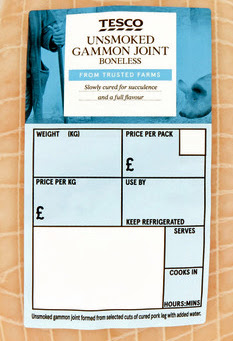I was
reading a marketing training guide the other day and it said “Customers expect
brands to be open, honest and authentic. They are increasingly interested in
understanding provenance and are much more marketing-savvy than they used to
be. Brands must be as clear as they can be, to avoid confusing customers in any
way”.
Well, I do
not think that anyone from Tesco’s marketing department has been on this course
or indeed, any other marketing course.
Actually, having
had second thoughts about this, quite possibly I’m wrong and they have all been
sent on a training programme entitled “How to be as economical with the truth
as possible”.
Tesco’s you
see, have a range of branded farms with quintessentially rural sounding British
names, such as Nightingale farms, Willow farms, Woodside farms and Redmere
farms. Oh, that’s nice – supporting British farmers.
But you
really don’t have to dig that deep to find out that these farms are completely 'fictional'
farm brands. Yep – these farms do not actually exist.
Let me give
you an example. Below is a photo of a label from a packet of Tesco Garlic from
Redmere farms. Turn it over however, and you will see that it has been sourced
from China!
Now, is this
a little “un-truth”, a fib or a full-blown lie. Well, I am not certain – but it
sure as hell is not squeaky clean is it?
The other
thing that Tesco has started to use is the phrase “Trusted farms”. This term
means what? Trusted to be cheap as chips? Trusted to keep shelves full, whatever
the cost to the animal? It certainly
does not have any legal definition when applied to animal welfare.
The ham
joint in the photograph does not even have a country of origin written on it.
But that’s OK folks, because after all, it is from a trusted farm.
I will leave
you to make up your own mind about this marketing ploy. But I just want you and
Tesco to know, that I most certainly did not buy either the ham or the garlic.




